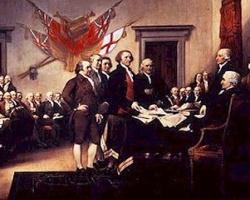The Farnan family is a self-described strong Christian family, and they are suing high school history teacher James Corbett – who combines historical facts and his interpretations of them to guide the students down roads they hadn’t previously traveled – and the Capistrano Unified School District for what the family says were hostile remarks about religion in class that made their 16-year-old sophomore son, Chad, uncomfortable and unable to learn.
The lawsuit centers around Chad’s tape recording of one of Corbett’s Advanced Placement European history classes at Capo Valley High School in October, in which he allegedly says, “When you put on your Jesus glasses, you can’t see the truth,” and references apparent positive correlations between the rate of church attendance and the rate of crime, adding, “The next time someone tells you religion is connected with morality, you might want to ask them about that.”
Among other comments, Corbett touches on “culture wars” in America; the death penalty in the South, where church attendance is higher; conservative views on pregnancy and abortion; exclusive policies among religiously-founded groups; and side effects of erectile dysfunction pills.
While the Farnans’ attorney claims the family isn’t seeking monetary damages, their lawsuit alleges that Corbett “demonstrates a sense of hostility toward religion or, in the alternative, a favoring of irreligion over religion”; therefore, the Farnans want him removed from the classroom.
The philosophical battle in this case seems to be over whether a high school history class is a proper place to talk about how religion influences history negatively and positively, and over what boundaries need to be placed on teachers when doing so. What the judge in this case (comprised primarily the school board) must decide is whether or not Corbett was teaching history or propagating his own view of history and religion and if Corbett’s actions are grounds for his removal or grounds for the establishment of new or clearer guidelines and boundaries.
How do you feel about making your students uncomfortable by expressing opposing opinions? How do you think youth ministers might better prepare students and families to engage teachers and other adults when they feel their belief systems are under verbal attack?




